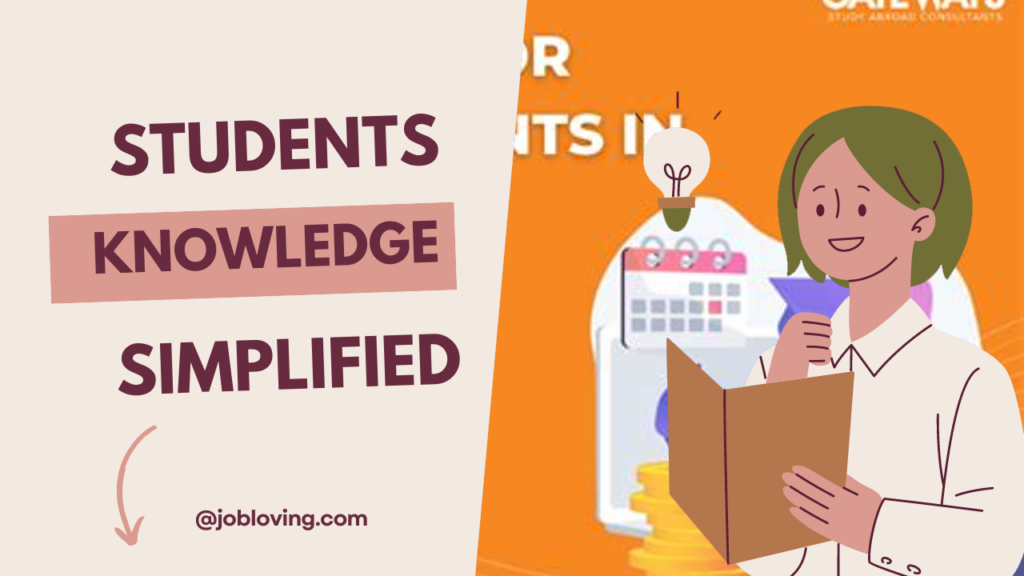How Do People Afford to Study in Australia?
Studying in Australia is a dream for many students across the globe, but as with any dream, it comes at a price. With tuition fees soaring as high as AUD 50,000 annually, many often find themselves questioning, “How do students afford to study here?” Well, hold onto your hats because this guide is about to take you on a whirlwind tour of the financial pathways that enable students to turn their Aussie dreams into a reality.
Government Programs: HECS and HELP
First off, let’s dive into the world of *government loans*. One of the most attractive aspects of studying in Australia is the Higher Education Loan Program (HELP). This godsend allows domestic students to defer tuition fees until they start earning a certain income, making education a lot more financially feasible. Such programs cover not just tuition but also help students pay for various educational costs, making it easier for students to manage the hefty price tag of an Australian education.
Scholarships: The Golden Ticket
Scholarships can be a student’s best friend. Various institutions and organizations like the Australia Awards offer prestigious scholarships, which could cover tuition, living, and even travel expenses. For international students seeking to study down under, these scholarships often serve as the golden ticket toward financial aid.
- Be sure to apply early, as many scholarship programs kick off their application process in April each year.
- They can be merit-based, need-based, or based on a combination of both—essentially, there’s a sprinkle of possibility for everyone.
Part-time Work: Balancing Studies and Earning
For those not lucky enough to land a scholarship, part-time work is a popular way to help fund education. Under a student visa, individuals are allowed to work up to 48 hours per fortnight during the semester and unlimited hours during semester breaks. Even working the minimum wage of AUD 24.10 per hour adds up quickly, especially since many students seize opportunities to work late shifts or weekends where wages may be higher.
It’s not uncommon for students to juggle multiple jobs—whether it’s working in cafes, retail shops, or even institutions affiliated with their universities. Moreover, many universities proactively offer part-time job opportunities, allowing students to earn while they learn!
Crowdfunding and Family Support
Some students are turning to crowdfunding platforms like GoFundMe to raise money for their educational expenses. By sharing their stories and ambitions with friends, family, and even strangers interested in supporting education, some have found success in generating the funds they need.
Family support is another significant factor. Many international students often turn to their family as the primary source of financial support. In cultures where education is highly valued, families commonly set aside savings that resemble future education mortgages, financially preparing for their child’s journey to Australia.
Financial Planning: A Necessity
Financial planning is not just a buzzword but a crucial aspect of managing the costs of studying in Australia. Being savvy with budgeting not only helps students stay afloat but can also lead to some pretty impressive savings over time. Whether through installment plans to pay tuition fees or clever budgeting of everyday expenses, it’s clear that financial awareness can lead to a far more sustainable experience abroad.
Internships and Research Opportunities
Let’s not forget about the invaluable experience gained through internships and paid research positions. While they may not always provide the financial cushion everyone dreams of, they can certainly contribute to it. Tips for success include seeking out unpaid internships to gain experience while simultaneously pursuing part-time jobs or research assistant positions, which often come with stipends that can significantly relieve the financial burden.
- Students frequently find themselves in a tough position—balancing academic performance while trying to earn enough to live on. Prioritizing studies over part-time jobs is key to maintaining high GPAs.
- Overall, unpaid internships, though not bringing home the bacon, can offer critical connections and invaluable experience for the future.
Trust, Networking, and Inner Strength
The route to affording studies isn’t paved with ease. Many students encounter challenges such as exploitative working conditions or misunderstandings around financial stability stemming from cultural perceptions. For instance, it’s easy to assume that because many international students come from wealthier backgrounds, they are immune to financial pressures—but that’s often far from reality.
Networking with peers can enrich one’s understanding of different cultures and improve communication skills, which are essential in building a successful career footing in Australia. Plus, having a strong work ethic means students often sacrifice leisure time to support their education—making true a reality that success often requires grit and determination.
Understanding Financial Landscapes
It’s vital for prospective students to recognize and prepare for the financial landscape of studying in Australia. Understanding the ins and outs of funding options, loans available, and scholarship opportunities is essential. From corporate sponsorships to government programs and family backing, the avenues to managing education expenses are plenty.
Even amidst all of this, it’s important to keep the spirit of learning and growth intact while navigating this maze. Many students find themselves maturing profoundly through their challenging experiences, emerging as more resilient, grateful individuals.
Conclusion: The Cost of Education—Determined by a Dream
Affording to study in Australia is undoubtedly a challenge, but it’s one filled with opportunities for those who seek them out. With a combination of government assistance, hard work, creative financial solutions, and family support, many students are successfully writing their stories down under. Education may come with a hefty price tag, but the return in experiences, knowledge, and growth is priceless.
So, whether you’re drawing from your family’s savings, leveraging government loans, or mixing in a part-time job or scholarship applications, the journey of affording an education in Australia is much more than just dollars and cents—it’s about investing in dreams!

